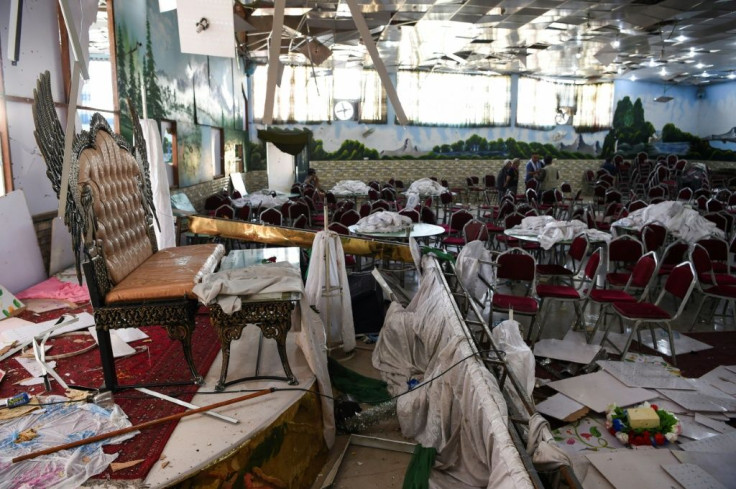US Taliban negotiator returning to Doha amid peace deal hopes

The top US negotiator on Afghanistan said Tuesday he was ready to conclude peace talks with the Taliban as he headed back to Qatar on a mission to end America's longest war.
With President Donald Trump believed to be pushing for a pullout of the more than 13,000 US troops in Afghanistan before the November 2020 election, the talks are expected to focus on establishing a timeline for the US withdrawal in exchange for a "reduction in violence" and a Taliban pledge to not protect the Islamic State or Al-Qaeda.
"We've been there for 18 years, it's ridiculous," Trump told reporters shortly after the announcement that his envoy Zalmay Khalilzad was returning to the Qatari capital Doha for another round of talks.
"We are negotiating with the government and we are negotiating with the Taliban," he said.
"We have good talks going and we will see what happens."
Planning for Kabul-Taliban talks
Khalilzad, the US special representative for Afghanistan reconciliation, bolstered optimism for a peace agreement last week when he concluded the eighth round of negotiations with the Islamist insurgents with a tweet saying he hoped this is the final year that the country is at war.
The veteran diplomat also has to prepare the ground for peace talks between the Taliban and the Afghan government, which would come after any deal with Washington.
"Productive week in Washington. Briefed management on where we are and next steps," Khalilzad tweeted as he headed to Qatar.
"Back on the road again. First stop Doha where we will try and close on remaining issues. We're ready. Let's see if the Taliban are as well."
The State Department said he will head to Afghanistan after Doha where he plans to help prepare the ground for Kabul-Taliban talks.
Earlier Tuesday Pompeo told CNBC television that a deal in Doha was possible, if the current level of attacks in the country can be significantly reduced.
"The conversations are going well," Pompeo said.
"What really happens on the ground, if we can reduce violence, we'll create a space where we can withdraw not only American support but NATO forces that are there as well."
18 years 'long enough'
Trump, a vocal critic of the Afghan war before he was elected in 2016, said US forces have been stuck there acting like a "police force."
"Its 18 years, we are not really fighting," he said. "At a certain point, you have to say, that's long enough."
But he also said that the US would not completely pull out of Afghanistan in any agreement with the Taliban which ruled Afghanistan until being toppled by a US-led coalition in late 2001.
"We have to have a presence, yes. The Taliban does not respect the Afghan government," he said, adding: "It is a dangerous place and we have to keep an eye on it."
Attacks continue
Even so, a rapid drawdown of US troops could face resistance in Washington, where some fear that Trump's eagerness to pull out from Afghanistan before next year's election could leave a vacuum that would only intensify the civil war and allow Islamic State, Al-Qaeda and other such groups room to grow.
Indeed, as the Doha talks have progressed, the level of violence has not fallen.
On Saturday, just days after the last round of talks concluded, an Islamic State suicide bomber killed at least 63 people at a wedding in Kabul.
And on Monday scores of people were wounded after a series of explosions shook the eastern Afghan city of Jalalabad, which is threatened by both IS and Taliban fighters.
Critics of Trump say he should take the same approach to Taliban talks as he has with North Korea, insisting that no deal is preferable to a bad deal.
"We will not be ending the war -- we will be retreating and ceding the battlefield to our enemies, including the organization that harbored the terrorists responsible for killing nearly 3,000 Americans on 9/11," said Republican lawmaker Liz Cheney.
© Copyright AFP 2024. All rights reserved.




















